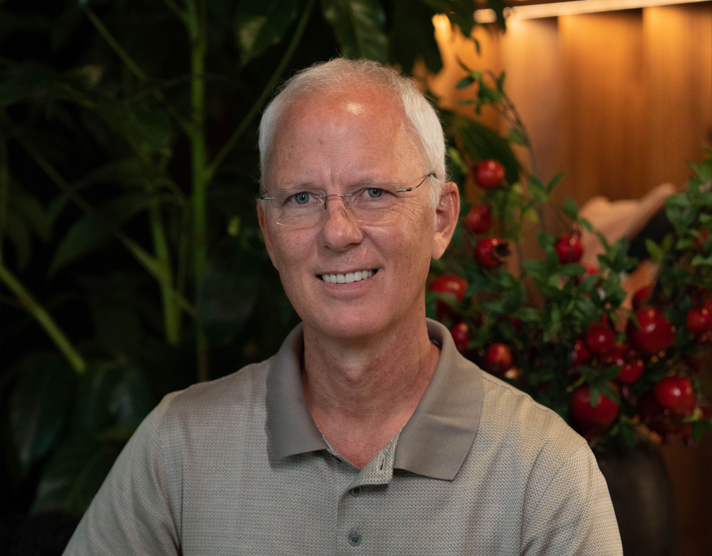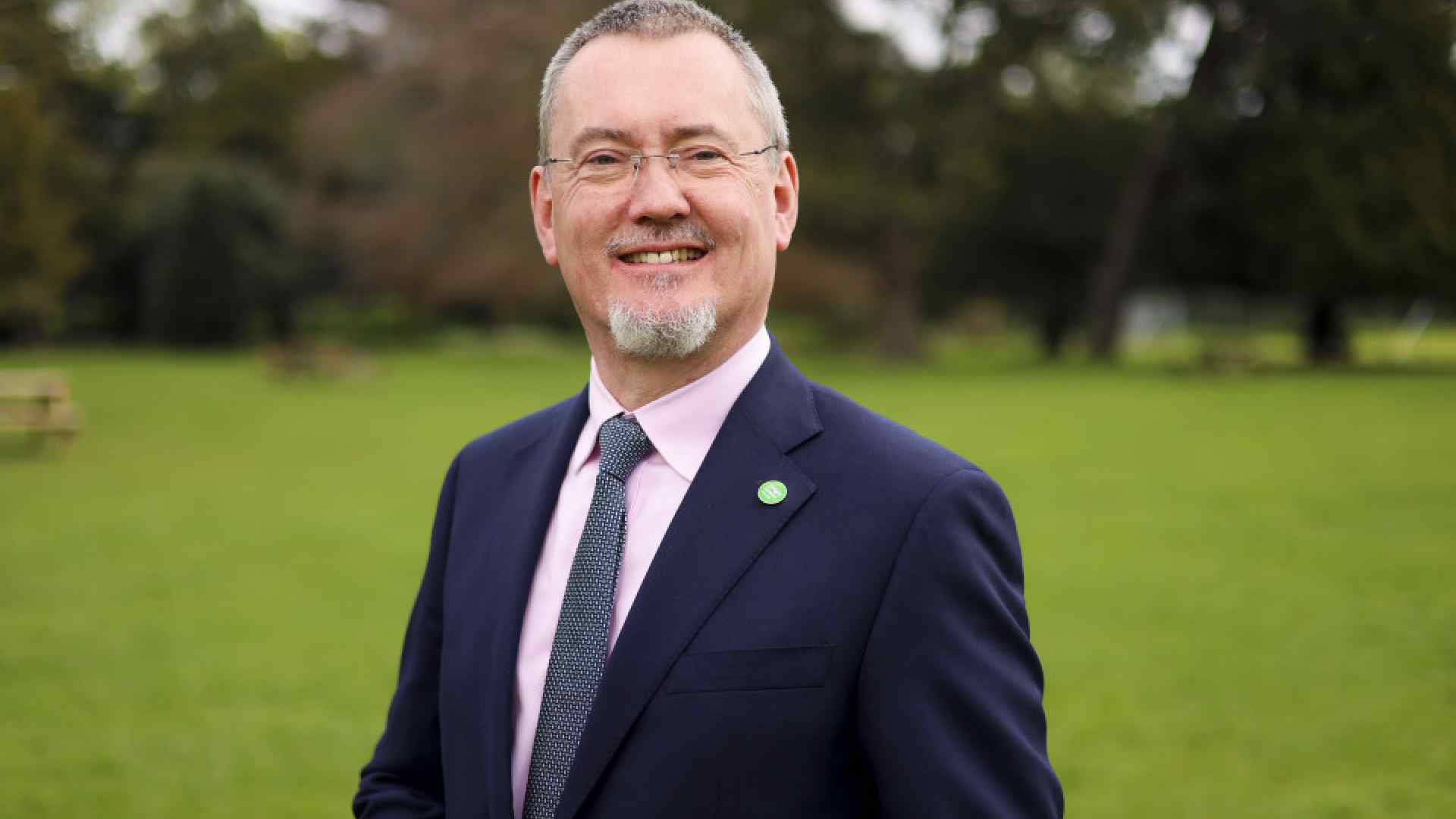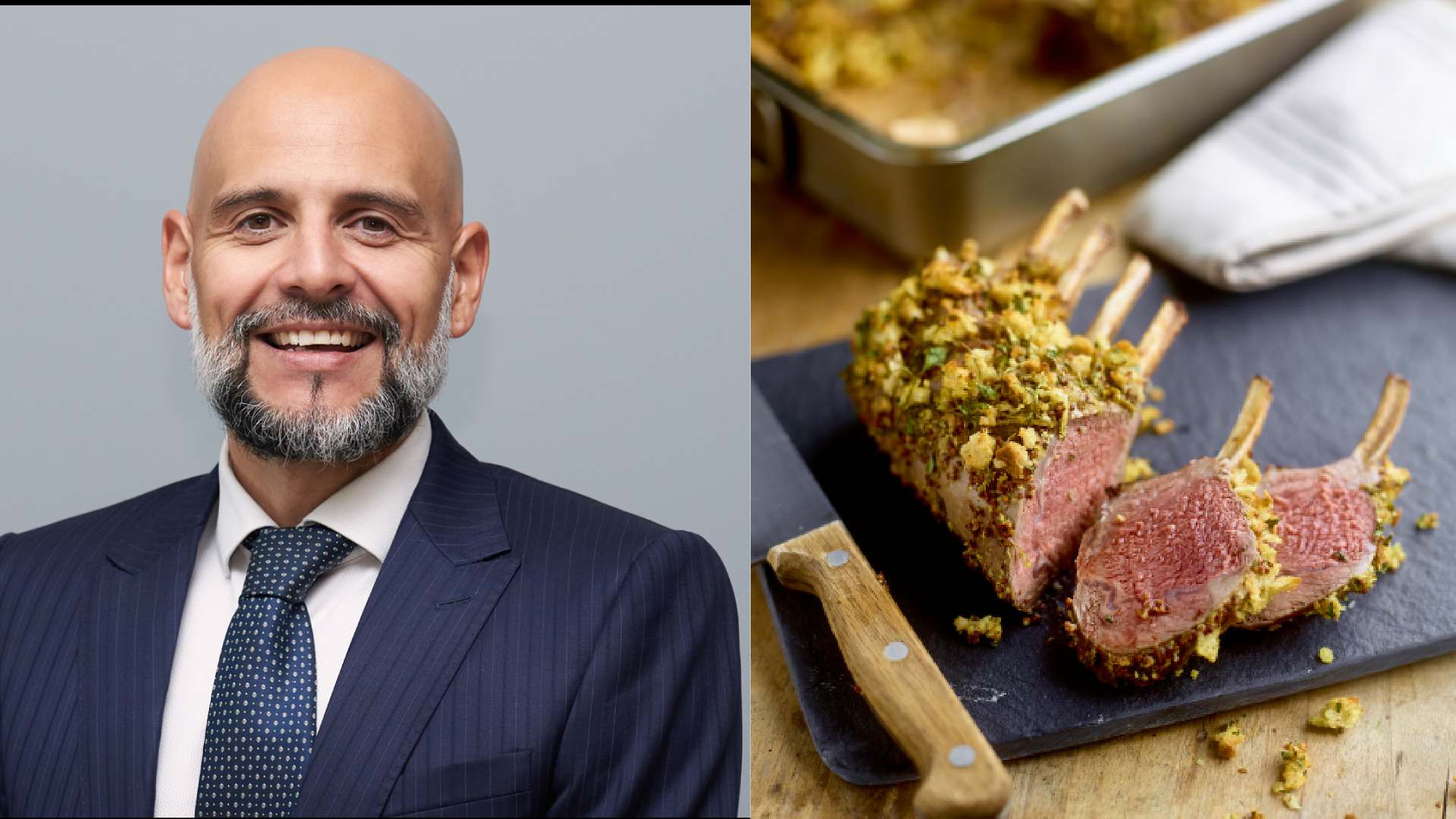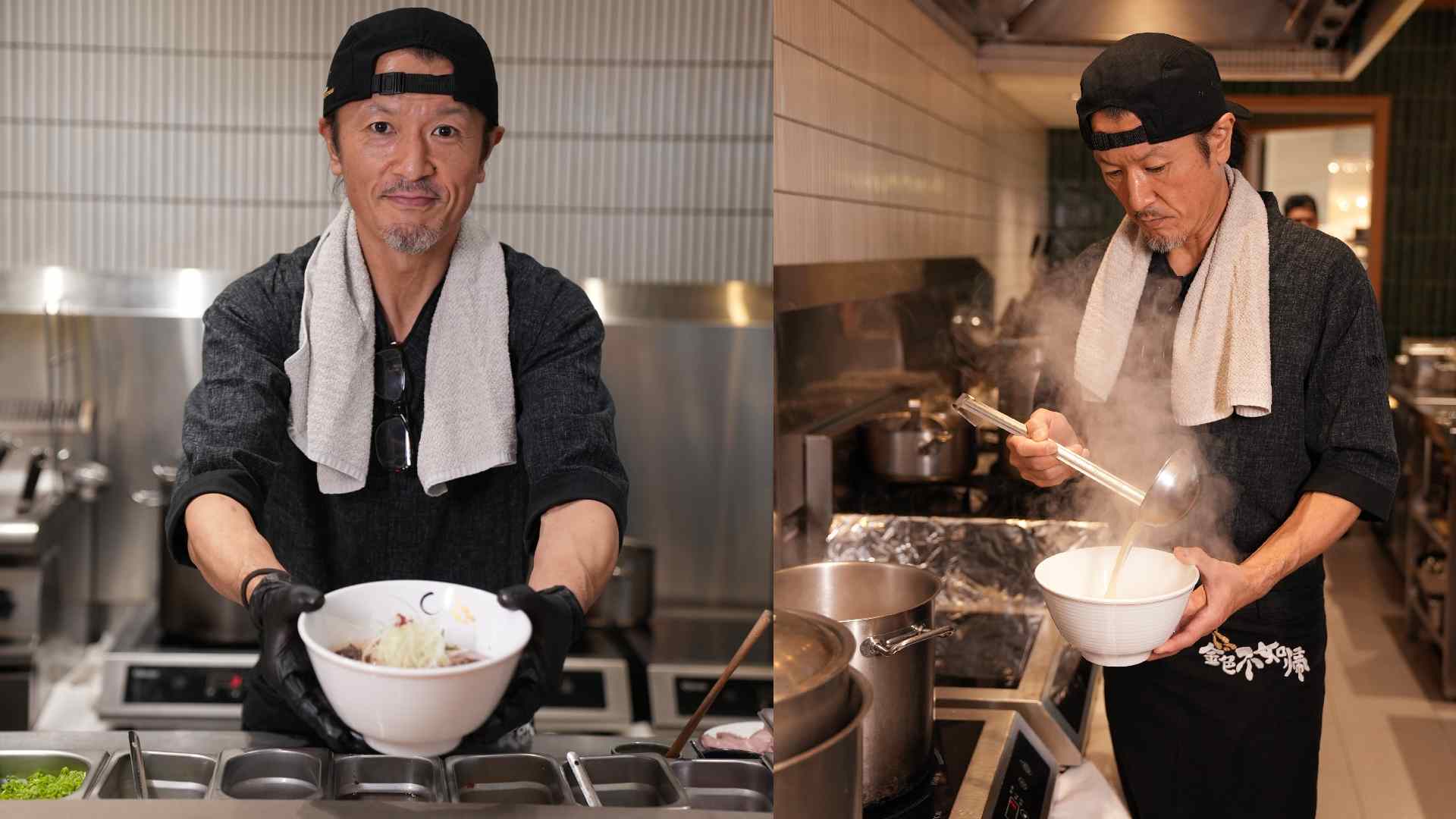Hospitality Interviews
Tigrus Restaurant Holding: Savoring Sustainability in Every Bite

The Integrator had an exclusive interview with Henrik Winther, Founder, Tigrus Restaurant Holding
Could you provide a brief overview of Tigrus Restaurant Holding and its founding principles?
We are a sustainable, family-friendly hospitality group that prides itself on operating eco-friendly restaurants, educating on leaving a better world behind for future generations to come. Being sustainable is a lifestyle choice for us, and it’s something we work on as a team daily, creating a positive, motivating, and uplifting work ethic for the whole team.
How has Tigrus evolved since its establishment in 2005, and what sets it apart in the restaurant industry?
Our growth and efforts have been a huge factor in evolving. Since we began in 2005, we’ve expanded into the Middle East and now plan to launch 25 restaurants in the next 4 years in the GCC. When we started, we were not carbon neutral. Our most significant evolution was understanding where we could cut back, and in three years, we reduced our CO2 emissions by 43%. We have now achieved a state of neutrality. We’re different from other hospitality brands as we have implemented sustainability into our lifestyle and company culture. It’s not something we do half-heartedly; it’s our tool for growth and expansion as it drives team morale and saves us money.
Tigrus Holding is known for its commitment to sustainability. Could you elaborate on the initiatives the company has taken to fully compensate for its carbon footprint and achieve zero waste since 2018?
We do many things. Some of my favorites include utilizing coffee ground waste to become plant food to feed foliage in the restaurants, switching our kitchen stoves to induction, and sponsoring wild cats around the world in locations where we open restaurants. We are sponsoring Siberian Tigers in Russia and snow leopards in Tajikistan and are in the process of doing the same in the UAE. I really enjoy taking my team on excursions to experience something new and take part in saving wildlife.
Tigrus recently launched Osteria Mario in Dubai Marina. What motivated the choice of location, and how does this new venture align with the company’s overall mission and values?
The marina is a bustling hotspot in Dubai. If you’ve visited our Marina branch, you’ll notice that we have an extensive terrace filled with live plants and the most beautiful view, which both align with our brand as we like to be in hotspots and have plenty of space for plants.
Could you share insights into the unique features that Osteria Mario offers in Dubai Marina?
As mentioned, we have an extensive terrace. Unusually, we also have a dine-in, out concept for cooler months as we have had bi-fold doors fitted on the ground level so we can open them up to give guests the same open plan view of the marina up and down in the restaurant.
Tigrus has ambitious plans to expand its chain to 100 restaurants. Can you share some insights into the company’s strategy for achieving this growth while maintaining its commitment to sustainability?
Having four restaurants in Dubai has meant our supplier database is expensive, so we’ve done the groundwork here to operate sustainably. We’re currently exploring how to do that in other GCC countries as we grow in this region. As mentioned throughout, sustainability is a lifestyle choice that we take everywhere we go.

Hospitality
IRISH FOOD PRODUCERS SHOWCASE STRENGTH AND DIVERSITY

Exclusive interview questions with Jim O’Toole CEO of the Irish Food Board (Bord Bia)
This year, 15 Irish companies are exhibiting at Gulfood — what makes this group particularly strong or diverse?
The strength of this group lies in both its diversity and depth. We have companies represented across dairy, meat, ingredients and value-added food, serving retail, foodservice and manufacturing customers.
What is particularly notable is the mix of long-established exporters alongside companies that are newer to the region, all united by a focus on quality, reliability, and customer partnership. Together, they showcase the breadth of Ireland’s food offering and our ability to meet a wide range of market needs.
How important are traceability, provenance, and quality assurance for buyers in this region?
These factors are fundamental for buyers in the Middle East. Customers here place a strong emphasis on health and nutrition, knowing where food comes from and how it is produced.
Irish food and drink performs well in this context because our systems provide high levels of traceability and quality assurance, giving buyers confidence in both product integrity and consistency of supply.
You’ve led Bord Bia through a period of major global change — from Brexit to supply chain disruptions. Looking back, what has been the most defining moment of your tenure as CEO?
One of the most defining periods was navigating the immediate aftermath of Brexit while also managing global supply chain disruption. It reinforced the importance of market diversification, strong customer relationships and adaptability.
It also underlined the value of having a long-term strategy focused on building resilience for Irish exporters, rather than reacting to individual shocks in isolation.
Is there a moment from your travels or trade missions that really crystallized for you the global potential of Irish food and drink?
What consistently stands out is seeing Irish products on shelves, menus and in foodservice operations in markets far from home. That visibility reflects years of work by exporters and agencies alike.
Trade missions like this one often crystallise the opportunity — when you see buyers from multiple regions engaging with Irish companies, it reinforces the truly global potential of Irish food and drink.
Which sectors — such as dairy, meat, seafood, or beverages — are seeing the strongest demand in the region?
Dairy continues to perform very strongly in the region, particularly in ingredients and value-added consumer products. Meat is also seeing solid demand across retail and foodservice channels.
In addition, consumer foods and Irish beverages — particularly whiskey — continue to gain traction, supported by premium positioning and growing brand recognition.
How important is storytelling — origin, farming practices, sustainability — in influencing hospitality purchasing decisions today?
Storytelling has become increasingly important. Buyers are looking for products that not only meet quality and price requirements, but also align with consumer expectations around origin, production standards and sustainability.
Irish producers are well positioned here, as these stories are rooted in real practices rather than marketing alone, which resonates strongly with both buyers and end consumers.
What role can Irish producers play in supporting food security and consistency of supply in the Middle East?
Irish producers can play a meaningful role by offering reliable, high-quality supply from a well-regulated and export-focused food system.
Consistency, long-term planning and strong partnerships are key in this region. Ireland’s ability to deliver at scale, while maintaining quality and sustainability standards, makes us a dependable partner in supporting food security objectives across the Middle East.
Hospitality
WHY HOTELS ARE BETTING ON PREMIUM BEEF AS A BRAND DIFFERENTIATOR IN 2026

Exclusive interview with Darren Watson, Regional Manager, Europe, Middle East & Africa, Meat & Livestock Australia.
Premium beef is no longer limited to white-tablecloth dining. How are hotels today integrating premium beef sourcing across different F&B formats, from luxury restaurants to all-day dining and casual concepts, without compromising margins?
Hotels are no longer sourcing beef purely on price. Instead, they are prioritising consistency, yield and eating quality across all F&B formats, from signature restaurants to all-day dining and casual outlets.
Premium beef is now being used far beyond fine dining, particularly in burgers, grills and sharing concepts, where guests are willing to pay for quality. Grain-fed and Wagyu beef are increasingly appearing in casual formats because they deliver flavour and reliability without adding complexity in the kitchen.
Australian beef allows hotels to manage margins by using a wider range of cuts, including secondary cuts and smaller portions, while still delivering a premium experience. Consistent eating quality, traceability and provenance give chefs confidence that the product will perform across multiple outlets, helping hotels balance quality, creativity and commercial returns.
You lead Meat & Livestock Australia across multiple regions and verticals. What drew you to this industry in the first place, and what keeps you motivated to drive premium Aussie Beef and Lamb adoption in the UAE and MENA region?
I joined MLA in 2025 with over 25 years’ senior executive experience in global business, specialising in the international marketing and business development of Australian agricultural products across the Middle East, Africa and the Subcontinent, supported by extensive cross cultural leadership experience.
What attracted me to this role and what continues to drive me is the immense opportunity I see here for Australia’s high quality, consistent, and sustainably produced Aussie Beef and Lamb. Over the past five years Australia’s red meat export volume growth has been faster to the MENA region than the rest of the global markets combined (10% vs 7%) and value growth has been more than double to the MENA region (14% vs 6%), which speaks to its reputation not only in the MENA region but around the world.
Consumers are looking for responsibly farmed, high quality meat, and Aussie Beef and Lamb is leading the way in meeting those expectations.
Chefs are increasingly shaping purchasing decisions rather than simply executing them. How are fine-dining concepts and chef-led menus influencing demand for higher-grade beef cuts across the region?
Chefs are now central to purchasing decisions, driving demand for premium cuts, consistent eating quality, and trusted provenance. They want confidence in where the beef and lamb they buy comes from and how it’s produced, and that it’s going to meet their customers’ expectations, every time.
Australia’s grain-feeding programs are carefully designed to support each animal reach their quality potential, delivering that signature rich and deep flavour that high marbling, premium beef is known for. Combined with Australia’s ideal environment, strong biosecurity measures, and rigorous processing standards, you get a consistently premium product that can be supplied 12 months of the year to the highest global standards.
Additionally, Australia is home to the second largest Wagyu herd in the world behind Japan and is the largest exporter of Wagyu beef. Combining traditional Japanese Wagyu bloodlines with innovative and sustainable farming techniques, Aussie Wagyu delivers exceptional marbling and flavour all year-round.
Innovation is a major focus for Meat & Livestock Australia at Gulfood 2026, with five pioneering brands showcasing next-generation solutions. How important is innovation, from oxygen-elimination packaging delivering chilled shelf life beyond 120 days to supply-chain efficiencies in futureproofing the red meat industry for hospitality?
Innovation is critical. Advances in packaging shelf life and cold chain efficiency are transforming how Aussie Beef and Lamb is stored, shipped and utilised, reducing waste, improving consistency and giving hospitality operators greater flexibility without compromising quality. Innovation supports premium positioning, rather than replacing product quality.

Australian beef exports to the region are seeing average unit values grow nearly twice as fast as the global average, signalling that buyers are paying more for quality, marbling, and consistency. How have chef and buyer expectations evolved over the past few years, and what does this mean for suppliers?
Buyers are far more informed and discerning than they were even a few years ago. With growing affluence among the MENA region households, and continued strong growth forecast to 2030, particularly in Saudi Arabia and the UAE (US $50,0000 + annual household disposable income), they’re paying for reliability, eating quality, and brand trust.
With its world class traceability and eating quality grading systems, premium Australian grainfed beef delivers this trust from farm to fork, every animal is tracked, ensuring top tier food safety and transparency.
Sustainability credentials and provenance are an increasingly part of supplier selection and brand storytelling, not a “nice to have”.
What’s one thing you want hospitality leaders in the UAE to understand about premium beef in 2026 that they might not be thinking about yet?
Premium beef is no longer just a luxury ingredient; it’s a brand and experience differentiator. Those who integrate it into their broader food story, will see the strongest returns. As a brand, Aussie Beef & Lamb logos now have high awareness and strong associations with quality, safety and trust. Australian red meat is widely viewed as the “most superior” among imports by affluent MENA region consumers.
Looking ahead, what should hotel groups and F&B leaders be paying closer attention to when it comes to premium beef sourcing in the next three to five years?
Over the next three to five years, premium beef sourcing will be less about individual cuts and last-minute substitutions, and more about long-term, reliable partnerships that deliver consistency, flexibility, and eating quality across multiple dining formats.
In 2026, some 128m tourists are expected to arrive in the region and spend around US$ 151.3bn. An additional 27m tourists are forecast between 2025-2030 with Saudi Arabia, UAE and Egypt leading the growth. An additional 560 new hotels (and associated dining venues) are forecast to be built over the same period, boosting food and red meat consumption.
Visitors to the UAE are more informed and adventurous diners; they expect high quality and menus designed for international tastes. Aussie Beef and Lamb are a trusted choice across all international cuisines from fine dining, to casual and all-day menus. As expectations around sustainability, transparency, and supply-chain reliability continue to rise, operators will increasingly favour suppliers that can support menu engineering, yield optimisation, and storytelling.
Hospitality
CRAFTING THE PERFECT BOWL

An exclusive interview with Chef Atsushi Yamamoto, Konjiki Hototogisu
Take us back to 2006, what was it like running your cozy little ramen spot in Shibuya during those first few years?
I started with a small shop of just 23 square meters and only 8 seats. It was located in a narrow alley where only about 30 locals passed by each day, and no cars could enter. During the first year, I had only about five customers on most days, and even on good days, it was less than 20. Since I was married, it was especially tough to make a living. I couldn’t afford to waste ingredients, so I would take home any leftover ingredients, which allowed me to get by each day. In Japan, ramen shops typically only serve ramen, and it was common for a customer to eat just one bowl and leave. A bowl of ramen was priced at about half of what it is today, so we had no room to buy ingredients for ourselves. Since there were many times when there were no customers in the shop, I used that time, as well as after closing, to constantly study ingredients and cooking techniques. I always thought about what kind of ramen would be appreciated by customers and made an effort to learn and improve.
What first drew you into the kitchen? Was it passion, curiosity, or pure hunger to create something your own?
When I was 24 years old, I witnessed a chef at a restaurant I visited for the first time receiving thanks from a regular customer who said, “Thank you for always serving delicious food. It was very tasty today as well.” Seeing that made me want to pursue a job where I could inspire and be appreciated by others, just like that chef. I still remember that moment vividly.
From Tokyo to Dubai, how did adapting to the UAE dining scene challenge or change your cooking mindset?
I am constantly thinking about how to create ramen that utilises local ingredients and how to make it unique to me. Additionally, I have always considered what is necessary for the local residents to appreciate my ramen. My philosophy is to continue improving the flavour until it receives positive feedback. If there has been a change within me, it is my perspective on the taste preferences of the people in Dubai. I have reaffirmed that people’s tastes differ significantly from country to country.
If every bowl tells a story, what do you hope the final spoonful leaves your guest thinking?
I hope that customers understand that the flavour of the ramen they enjoy is the result of many years of development. I strive to create flavours that allow them to experience the story of the maker when they eat it.
What’s the one lesson you learnt by sleeping in your shop and tweaking recipes until midnight, what would you tell your younger self?
The year I opened my shop in 2006 was a time when many well-regarded restaurants were opening. My shop received no customers at all, while many others that opened the same year quickly had long lines. I felt incredibly frustrated. However, I believed that if I worked hard, I could surely become the best. As a result of taking the time to improve my ramen, I am where I am today. I believe that hard work never betrays you.
Finally, what I would like to tell my younger self is, “Thank you for always believing in yourself and continuing to work hard.” I am simply filled with gratitude. Moving forward, I will do my utmost to put smiles on my customers’ faces.
-

 Tech News2 years ago
Tech News2 years agoDenodo Bolsters Executive Team by Hiring Christophe Culine as its Chief Revenue Officer
-

 VAR10 months ago
VAR10 months agoMicrosoft Launches New Surface Copilot+ PCs for Business
-
News10 years ago
SENDQUICK (TALARIAX) INTRODUCES SQOOPE – THE BREAKTHROUGH IN MOBILE MESSAGING
-

 Tech Interviews2 years ago
Tech Interviews2 years agoNavigating the Cybersecurity Landscape in Hybrid Work Environments
-

 Tech News7 months ago
Tech News7 months agoNothing Launches flagship Nothing Phone (3) and Headphone (1) in theme with the Iconic Museum of the Future in Dubai
-

 VAR1 year ago
VAR1 year agoSamsung Galaxy Z Fold6 vs Google Pixel 9 Pro Fold: Clash Of The Folding Phenoms
-

 Tech News2 years ago
Tech News2 years agoBrighton College Abu Dhabi and Brighton College Al Ain Donate 954 IT Devices in Support of ‘Donate Your Own Device’ Campaign
-

 Automotive1 year ago
Automotive1 year agoAGMC Launches the RIDDARA RD6 High Performance Fully Electric 4×4 Pickup








